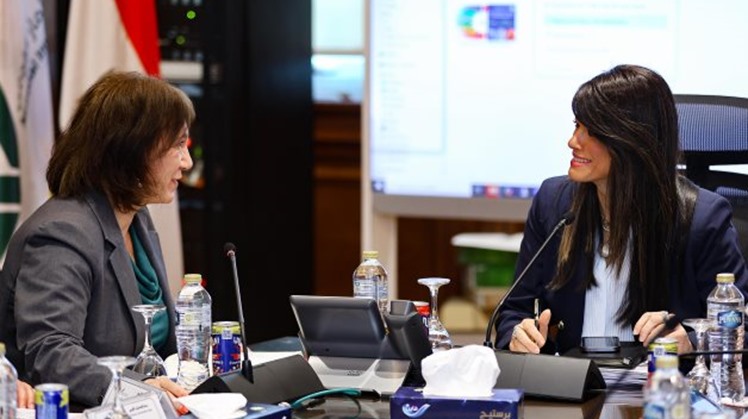CAIRO – 14 May 2025: Rania A. Al-Mashat, Egypt’s Minister of Planning, Economic Development and International Cooperation, held a meeting with the International Monetary Fund (IMF) delegation, headed by Ms. Ivanna Vladkova Hollar, to review the country’s progress in planned economic reforms.
The discussion covered Egypt’s macroeconomic performance, structural reform agenda, and plans for securing external financing to address funding challenges. Al-Mashat highlighted the economy’s notable recovery, with GDP growth rising from 2.4 percent to 4.3 percent over two consecutive quarters—a sign of regained momentum after past challenges.
She noted that beyond the growth rate, the structure of the economy is evolving. Sectors such as non-oil manufacturing, ICT, tourism, and transportation have become major engines of growth, even as Suez Canal revenues face pressure due to regional instability in the Red Sea.
A major theme of the meeting was Egypt’s deepening partnerships with international development institutions. Al-Mashat pointed to a €4 billion support package from the European Union that is already in motion. This package aims to stabilize the macroeconomic environment, enhance the business climate, and support Egypt’s shift toward a greener economy.
Crucially, the minister emphasized that Egypt’s development partnerships extend well beyond the public sector. In the last five years alone, the country has secured over $14.5 billion in private sector development financing through credit lines and direct investments that have bolstered job creation and private growth.
The meeting also spotlighted Egypt’s NWFE (Nexus of Water, Food, and Energy) platform—specifically its energy pillar. Al-Mashat revealed that Egypt has already mobilized $3.9 billion in concessional finance for renewable energy projects generating 4.2 gigawatts. The next target is even more ambitious: raising $10 billion to expand capacity to 10 gigawatts and increase renewable energy’s share in the energy mix to 42 percent by 2030.
In closing, Al-Mashat highlighted Egypt’s active debt swap agreements with countries like Italy, Germany, and China—initiatives that are helping reallocate debt toward high-impact development projects.
 Wed, May. 14, 2025
Wed, May. 14, 2025